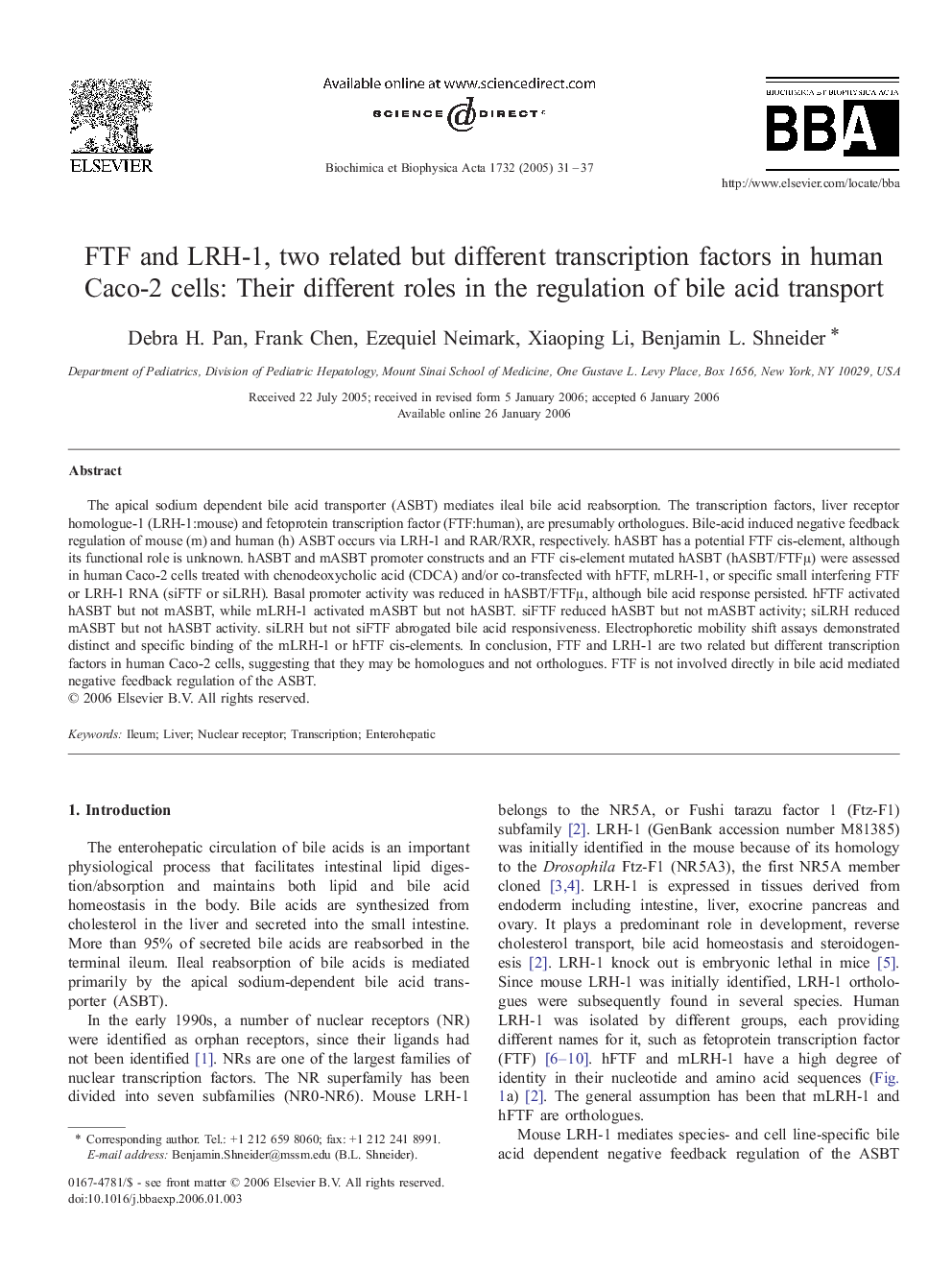| Article ID | Journal | Published Year | Pages | File Type |
|---|---|---|---|---|
| 9885511 | Biochimica et Biophysica Acta (BBA) - Gene Structure and Expression | 2005 | 7 Pages |
Abstract
The apical sodium dependent bile acid transporter (ASBT) mediates ileal bile acid reabsorption. The transcription factors, liver receptor homologue-1 (LRH-1:mouse) and fetoprotein transcription factor (FTF:human), are presumably orthologues. Bile-acid induced negative feedback regulation of mouse (m) and human (h) ASBT occurs via LRH-1 and RAR/RXR, respectively. hASBT has a potential FTF cis-element, although its functional role is unknown. hASBT and mASBT promoter constructs and an FTF cis-element mutated hASBT (hASBT/FTFμ) were assessed in human Caco-2 cells treated with chenodeoxycholic acid (CDCA) and/or co-transfected with hFTF, mLRH-1, or specific small interfering FTF or LRH-1 RNA (siFTF or siLRH). Basal promoter activity was reduced in hASBT/FTFμ, although bile acid response persisted. hFTF activated hASBT but not mASBT, while mLRH-1 activated mASBT but not hASBT. siFTF reduced hASBT but not mASBT activity; siLRH reduced mASBT but not hASBT activity. siLRH but not siFTF abrogated bile acid responsiveness. Electrophoretic mobility shift assays demonstrated distinct and specific binding of the mLRH-1 or hFTF cis-elements. In conclusion, FTF and LRH-1 are two related but different transcription factors in human Caco-2 cells, suggesting that they may be homologues and not orthologues. FTF is not involved directly in bile acid mediated negative feedback regulation of the ASBT.
Related Topics
Life Sciences
Biochemistry, Genetics and Molecular Biology
Biochemistry
Authors
Debra H. Pan, Frank Chen, Ezequiel Neimark, Xiaoping Li, Benjamin L. Shneider,
